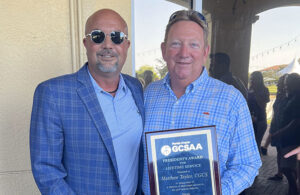UNH reopens Memorial Field
DURHAM, N.H.—On Oct. 26, University of New Hampshire (UNH) officials agreed to reopen Memorial Field for its varsity teams and their opponents after additional testing showed no measurable levels of lead, and blood tests for members of the field hockey team showed they do not have elevated lead levels. At press time, the field remained closed to everyone else, and the athletes must follow all safety guidelines recommended by the U.S. Centers for Disease Control and Prevention to use the field.
“The decision to reopen the field was made after additional tests on the field, surrounding soil, and drained water did not find measurable levels of lead,” says Director of Athletics Marty Scarano. “In addition, the field hockey coach and a majority of the players were tested and no elevated levels were detected. We believe the field can safely be used by our varsity athletes with close supervision.”
The field was closed Oct. 20, 2012, after university officials learned that the artificial turf surface installed in 2002 had degraded to a point where measurable lead levels were detected in dust samples taken on the surface of the field. Administrators consulted with the New Hampshire Department of Health and Human Services to manage the situation and determined that without additional testing the safety and well-being of its students, staff and faculty, as well as its many visitors, was the No. 1 priority.
Memorial Field had already been scheduled for replacement in the upcoming fiscal year. In light of the new information, the university is developing an earlier timeline to replace the field.
CDC recommendations for use of artificial fields at which lead has been discovered include the following:
- Limit access, especially to those under the age of 7;
- Aggressive hand and body washing after playing on the field;
- Laundering of clothing used on the field separately from other clothing;
- Eating and drinking while on the field should be discouraged;
- Avoid contaminating drinking containers; and
- Post restrictions at the field.










